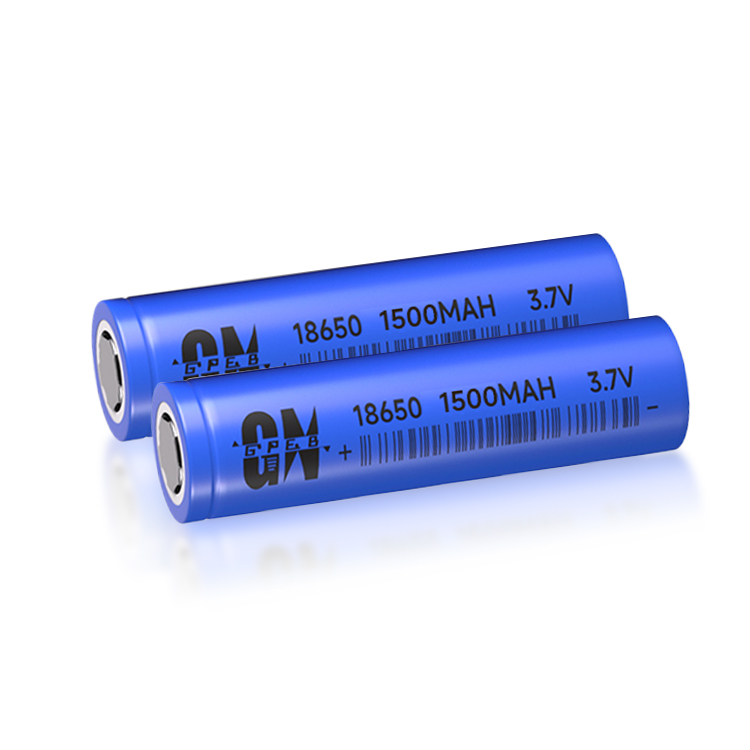

Whether used for grid energy storage, electric mobility tools or wearable electronic devices, lithium-ion batteries have become an indispensable part of people's lives. Every year, millions of tons of lithium are mined outside Germany to produce lithium-ion batteries. However, according to foreign media reports, Karlsruhe Institute of Technology in Germany
Whether used for grid energy storage, electric mobility tools or wearable electronic devices, lithium-ion batteries have become an indispensable part of people's lives. Every year, millions of tons of lithium are mined outside Germany to produce lithium-ion batteries. However, according to foreign media reports, scientists from the Karlsruhe Institute of Technology (KIT) in Germany have developed a cost-effective method to mine lithium ore in the country. They plan to use a minimally invasive process to extract lithium from the deep water of a geothermal power plant in the Upper Rhine.
Buried deep in the rock formations beneath the upper reaches of the Rhine River is a mineral: large amounts of lithium dissolved in salty hot water, waiting to be mined. Dr. Jens Grimmer, a geoscientist at KIT's Institute of Applied Geosciences (AGW), said: "As far as we know, the content of lithium in water may be as high as 200 mg per liter. If we can harness this element, we can meet a considerable part of Germany's needs. ." Currently, Germany relies solely on imports of this scarce resource, which is mainly used to produce electric vehicle batteries, so this is also very important for the German federal government's climate protection plan. Imported resources mainly come from countries such as Chile, Argentina and Australia, whose lithium production accounts for more than 80% of the global total.
Until now, domestic lithium mining in Germany has been hampered by a lack of appropriate processes to extract this resource in a cost-effective, environmentally friendly and sustainable way. Therefore, Grimmer collaborated with Dr. Florencia Saravia from the German Association for Technology and Science in Gas and Water Resources (DVGW) at the KIT Engler-Bunte Institute to develop a new process and is applying for a patent. "The first step is to filter the lithium ions out of the hot water," Grimmer said. "The second step is to further concentrate the lithium ions until the lithium can be deposited like a salt."
Compared with traditional methods of extracting lithium from salt lakes in South America and solid rocks in Australia, Grimmer-Saravia's process has several key advantages: 1. It uses the existing infrastructure of geothermal power plants, because as many as 2 billion of them are produced every year. Literated hot water flows to the power plant. 2. Compared with traditional mining operations, there is no excessive burden at all, and the land consumption is also minimal. 3. Since the hot water will return to the ground after use, it will not release any harmful substances, and geothermal power generation and heat production will not be affected. 4. In the hot water circulation of geothermal power plants, lithium can be continuously extracted within a few hours, while extracting lithium from salt lakes in South America takes several months and will be seriously affected by weather. If there is heavy rainfall, lithium production can be delayed by weeks or even months. 5. In addition, the process can also extract other rare and valuable elements such as rubidium or cesium from hot water, which are used in laser and vacuum technology.
Since the process can use the technology and energy infrastructure of geothermal power plants, it is also CO2 neutral compared to conventional processes. Florencia Saravia said: “In order to maintain and improve our living standards, we export many environmental problems to third countries. Using this process, we can take our responsibility and extract the requirements of modern technology on our doorstep in an environmentally friendly way. of vital raw materials. We can also build regional value chains and create jobs while reducing geopolitical dependencies.”
The two scientists are currently working with industry partners to develop a test device that can extract lithium. The first prototype will be built at a geothermal power plant on the Upper Rhine River, with the first step being to extract a few kilograms of lithium carbonate or lithium hydroxide. If the experiment is successful, plans are in place to build a large plant so that each geothermal power plant can produce several hundred tons of lithium hydroxide per year. Current data shows that thousands of tons of lithium can be extracted each year in the ditches on both sides of the upper Rhine River in Germany and France.

Popular recommendation
LR754 battery.Battery overcharge and over-discharge protection circuit
2023-10-14CR1220 battery.Design of battery charging, discharging and detection system based on PWM technology
2023-10-08lithium battery 18650 3.7v.A brief discussion on the basic principles of charging and discharging 18
2023-10-13Classification of ternary lithium ion batteries
2022-11-25What should be paid attention to when assembling lithium batteries
2022-11-04Characteristics of lithium battery separator
2022-11-23CR1225 battery.American light-absorbing and luminous solar cells will break through the conversion e
2023-10-08AG Coin foot battery
2022-06-18502030 battery.Introduction to the recycling and processing process of dry batteries
2023-10-0912v 18650 battery pack.Advantages of 18650 battery and 21700 battery
2023-10-13CR2477 battery.The world's most advanced consumer-grade battery technology is here
2023-10-0818650 battery 3.7v 6000mah.What is the significance of studying the health status of lithium-ion bat
2023-10-08